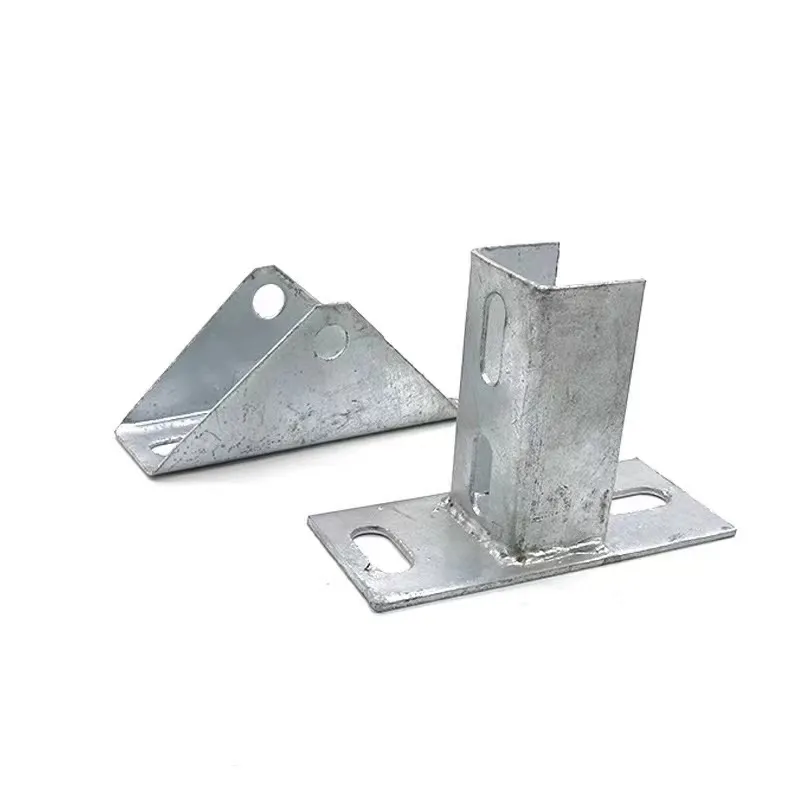

Self-Tapping Socket Head Cap Screws for Secure and Convenient Fastening Solutions
Nov . 08, 2024 03:03 Back to list
Self-Tapping Socket Head Cap Screws for Secure and Convenient Fastening Solutions
Understanding Self-Tapping Socket Head Cap Screws
Self-tapping socket head cap screws are essential components in various applications, known for their innovative design and remarkable versatility. As their name suggests, these screws are designed to tap their own threads into materials as they are driven in, eliminating the need for pre-drilled holes. This feature significantly reduces assembly time and offers reliable fastening solutions in different contexts, especially in industrial and manufacturing settings.
Design and Features
At the heart of the self-tapping socket head cap screw is its unique design. Typically made from high-strength materials like stainless steel or carbon steel, these screws feature a cylindrical head with a hexagonal recess. This allows for easy tightening using a socket wrench or hex key. The head design offers increased torque transmission, ensuring a secure fit while minimizing the risk of stripping or rounding.
The threading on these screws is another critical aspect. Unlike standard screws, self-tapping screws are engineered with sharp, aggressive threads that allow them to cut into the material as they are installed. This characteristic makes them particularly valuable for use in softer materials such as plastics, wood, or thin metals, where conventional screws might not hold effectively.
Applications
Self-tapping socket head cap screws are utilized across a wide array of industries, demonstrating their adaptability. In the automotive sector, they are commonly employed in assembling various components, from engines to bodywork, due to their strength and reliability. Their ability to create secure connections without needing tapped holes simplifies the manufacturing process significantly.
In the electronics industry, where compact and light-weight designs are crucial, these screws provide an efficient means of securing delicate components. Their self-tapping nature allows manufacturers to reduce the overall weight of products by minimizing the need for additional fastening hardware.
Furthermore, the construction industry benefits from these screws, especially in light-gauge structural applications. They can join metal sheets or components without compromising structural integrity, making them ideal for frameworks and cabinetry.
self tapping socket head cap screw

Advantages
The advantages of using self-tapping socket head cap screws are numerous. Firstly, they simplify the installation process, allowing for quicker assembly with fewer tools required. This convenience translates into cost savings for companies that rely on efficient manufacturing practices.
Additionally, their self-tapping design ensures a tight fit, which enhances the overall durability of the assembled product. By creating their own threads, they minimize the risk of thread stripping or loosening over time, contributing to long-term reliability.
Moreover, their versatility extends to various materials, making them a one-stop solution for many fastening needs. Whether used in metal, plastic, or wood, these screws adapt effectively, showcasing their multifaceted utility.
Considerations
While self-tapping socket head cap screws offer many benefits, certain considerations should be remembered during selection and usage. Proper material selection is crucial, as different materials have different strength requirements. For instance, using a self-tapping screw in a harder material may require a specifically designed type to avoid breakage.
Additionally, it is essential to use the correct size and type of screw for the job. Over-tightening can strip the threads, reducing the effectiveness of the screw. Furthermore, understanding the material properties where the screw will be installed can determine whether self-tapping screws are appropriate or if another fastening solution should be considered.
Conclusion
Self-tapping socket head cap screws are invaluable tools in the modern manufacturing and construction paradigms. Their unique design, coupled with substantial advantages in terms of speed and reliability, makes them a preferred choice in various applications. By understanding their features and proper usage, industries can leverage these screws to enhance productivity and deliver durable, high-quality products. As technologies evolve, the importance of efficient fastening solutions like self-tapping socket head cap screws will undoubtedly continue to grow.
Latest news
-
Premium Fasteners Manufacturer | AI-Driven Solutions
NewsAug.01,2025
-
Hot Dip Galvanized Bolts - Hebei Longze | High Strength, Corrosion Resistance
NewsAug.01,2025
-
High-Strength Hot Dip Galvanized Bolts - LongZe | Corrosion Resistance, Custom Sizes
NewsAug.01,2025
-
Best Self Tapping Screws for Drywall - Fast & Secure Installation
NewsJul.31,2025
-
High-Strength Hot Dip Galvanized Bolts-Hebei Longze|Corrosion Resistance&Customization
NewsJul.31,2025
-
Hot Dip Galvanized Bolts-Hebei Longze Metal Products|Corrosion Resistance&High Strength
NewsJul.31,2025

